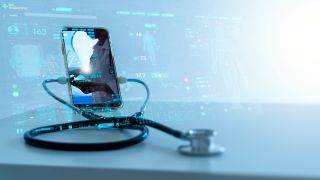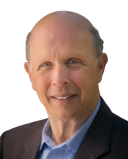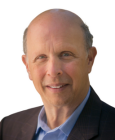Health
The Impact of Evolving Medical Practice
A Personal Perspective: Peering into the field of medicine in the 2040s.
Posted June 8, 2024 Reviewed by Ray Parker
Key points
- Medical practice may change rapidly because of innovations in technology and artificial intelligence.
- AI may become the de facto source of practice guidelines and compiler of evidence-based medicine.
- Medical care based solely on AI input could be administered efficiently by technicians rather than physicians.

Recently, I spoke with a high-school student who is interested in becoming a physician. I observed that the practice of medicine has changed a great deal over my career, which has spanned four decades. I expected that the practice would change even more rapidly over the coming decades because of political and financial influences, as well as further innovations in technology and artificial intelligence.
How It Was
I told the student that when I began my medical career, the practice of medicine involved making diagnoses and prescribing treatment based on what we were taught in medical school, continued medical education, our clinical experience, and sometimes through a comprehensive review of the medical literature regarding medically complex patients.
When I started practicing in the 1980s, physicians who worked in hospitals had ample time to interact with hospitalized patients (e.g., half an hour every day) and patients evaluated by medical specialists at outpatient clinic appointments (such as the patients referred to me in my capacity as a pediatric pulmonologist) routinely were seen for 45-60 minutes.
We spent our time interacting with patients face-to-face, performed careful physical examinations, and took minimal notes in the patient’s presence. Later, we would either handwrite more complete notes or dictate them so that they could be transcribed for inclusion in the patient records.
We read printed medical journals regularly and attended medical conferences to keep up with new diagnostic and therapeutic approaches. Pharmaceutical companies also provided access to new medical information related to the products they were selling.
How It Is
Over the next four decades, the practice of medicine evolved quickly, including:
- Articles and books were published that summarized medical evidence, and physicians have been encouraged to practice evidence-based medicine, i.e., medicine based on the results of scientific studies. In turn, guidelines have been published based on the evidence, which physicians have been encouraged to follow.
- New medical information was still delivered at medical conferences, but information from internet sources became the major source of new information, including through reading online journals.
- Pharmaceutical companies were largely excluded from interacting freely with physicians at medical centers to avoid providing biased information. This change prompted physicians to make better choices for their patients.
- The patient visit time with specialists was cut back to 15 minutes. (The appointment times with primary care physicians have been curtailed even more.)
- Half the visit was spent with the physician entering data into the electronic medical record.
- Sometimes, a physical examination was omitted, and sometimes, physicians barely looked patients in the eyes because they were spending so much time staring at their computers.
- Medicine entered the era of "bean counters," whose main purpose was to drive physicians employed by hospitals and corporations to generate revenue rather than provide optimal care.
One reason I switched from a hospital practice to a private practice nearly a decade ago was that I was able to return to seeing patients at a reasonable pace of 30-60-minute appointments, which allowed me to give them sufficient one-on-one attention.
I felt uncomfortable just following practice guidelines because such guidelines apply to the population as a whole but may not apply to the individual patient. I felt medical schools in the early part of the 21st century had trained physicians to act as medical technicians who follow protocols rather than teaching how to best practice the art of medicine.
The art of medicine works best when physicians start by carefully observing and listening to their patients. The best treatment is based on the physician’s knowledge, including but not limited to information from published guidelines, and adapting this understanding to the needs of individual patients.
When people ask me for my treatment plan, I respond that I listen to my patient’s individual needs and make an appropriate plan, which will be different from patient to patient.
How Will It Be?
Peering 20 years into the possible future is an important exercise for a student who is thinking about medicine as a career. I shared some of my thoughts in this regard with the student:
- With artificial intelligence's quickly expanding utility, healthcare providers will likely rely on AI to assist them in making diagnoses and formulating treatment plans. AI will have an advantage over human providers in that it will be able to more efficiently synthesize all information available about a patient and keep updated on the latest applicable medical developments.
- It is possible that AI will just serve as additional clinical input to the physician’s decision-making process, similar to how electronic medical records currently alert physicians to potential errors in their prescriptions and to consider certain diagnoses when assessing a patient.
- However, I believe it is likely that AI will become the de facto source of practice guidelines and compiler of evidence-based medicine. In this scenario, when physicians choose not to follow AI recommendations and a poor treatment outcome occurs, they may end up legally liable.
- The result of these changes could lead many physicians to rely exclusively on AI for their medical judgments, further reducing the role of art in medicine.
- Clinical innovation may be stifled because “out-of-the-box” thinking would be less likely to occur in a setting where readily available definitive AI-directed care is considered “state of the art.”
- Since following AI's lead would require less knowledge than that attained by physicians after many years of education (e.g., four years of college, four years of medical school, three years of residency training, and three years of specialty training), I suspect that allied health professionals will deliver most of the primary healthcare.
- These health professionals may also not require as much education as current nurse practitioners or physician’s assistants. Perhaps the main providers of healthcare will receive four to six months of training equivalent to that given to emergency medical technicians (EMTs) today. Their job will be to follow the AI recommendations.
- Shifting the role of primary healthcare providers to technicians will have the benefits of decreased costs (in training such providers and their salary expenses) and increased accessibility to healthcare that could be provided by many more people.
- Physicians’ primary role may evolve to serve as consultants only when patients do not respond well to AI/Allied health profession care, which would greatly reduce the need for physicians.
- Physicians may still be required to perform surgery, although with the advent of robotic arms that are used to perform surgery already, AI driven surgical procedures may not be far off, especially for routine surgeries.
- A small number of physicians may also be called upon to help refine AI.
Takeaway
Predicting the future is an endeavor fraught with peril. Many factors will come into play that have not been considered here, including unanticipated developments. Nonetheless, we owe it to our students to make the best guess at how their potential career fields might evolve over their lifetime so that they can consider these possibilities while making choices regarding their careers.
While some may regard the aforementioned potential diminished role of many physicians as a negative, the overall quality of healthcare delivery may be enhanced if the medical system adapts well to a primary AI/allied health profession model.




